This site uses affiliate links, meaning that if you make a purchase through our links, we may earn an affiliate commission.

20-Year Anniversary of the Fall of the Berlin War
I watched the 20-year anniversary celebrations of the fall of the Berlin Wall – the Cold War icon on November 9th, 2009.
Chancellor Angela Merkel – the first east German to hold the job – called the fall of the wall an “epic” moment in history. “For me, it was one of the happiest moments of my life, “ Merkel said. “Freedom must be fought for. Freedom must be defended time and again. Freedom is the most valuable commodity in our political and social system”
The crowd was cheering and chanting – “Gorby, Gorby”
Mikhail Gorbachev, the last leader of the Soviet Union, was by Merkel’s side.
“You made this possible – your courageousness let things happen, and that was much more than we could expect.” She told Gorbachev.
Merkel also welcomed Poland’s 1980’s pro-democracy leader, Lech Walesa, saying that his Solidarity movement provided “Incredible encouragement” to East Germans. Walesa and Miklos Nemeth, Hungary’s last prime minister before the collapse of communism, toppled the first wave of the brightly painted huge dominos resembling the blocks of the wall. It drew a huge wave of cheers from the crowd.
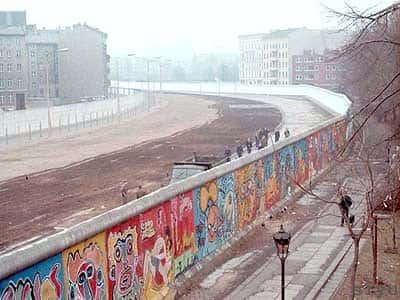
Growing up with the Berlin Wall
Growing up I used to go with my parents to East Germany and East Berlin. We went to West Berlin a few times as well. I saw the wall many times. I saw the wall on both sides – east and west.
The wall wrapped around West Berlin. It was 91 miles long (155 km). The section that separated the east and west Berlin was 27 miles long and was the most barricaded. It had two concrete walls between which was a “death strip”. It contained many watchtowers, miles of vehicle trenches, guard dog runs, floodlights and trip-wire machine guns.
Initially, there were only three checkpoints that you had to get through to go from East to West: Helmstedt (Checkpoint Alpha), Dreilinden (Checkpoint Bravo) and Friedrichstrasse (Checkpoint Charlie); later on more checkpoints were added.

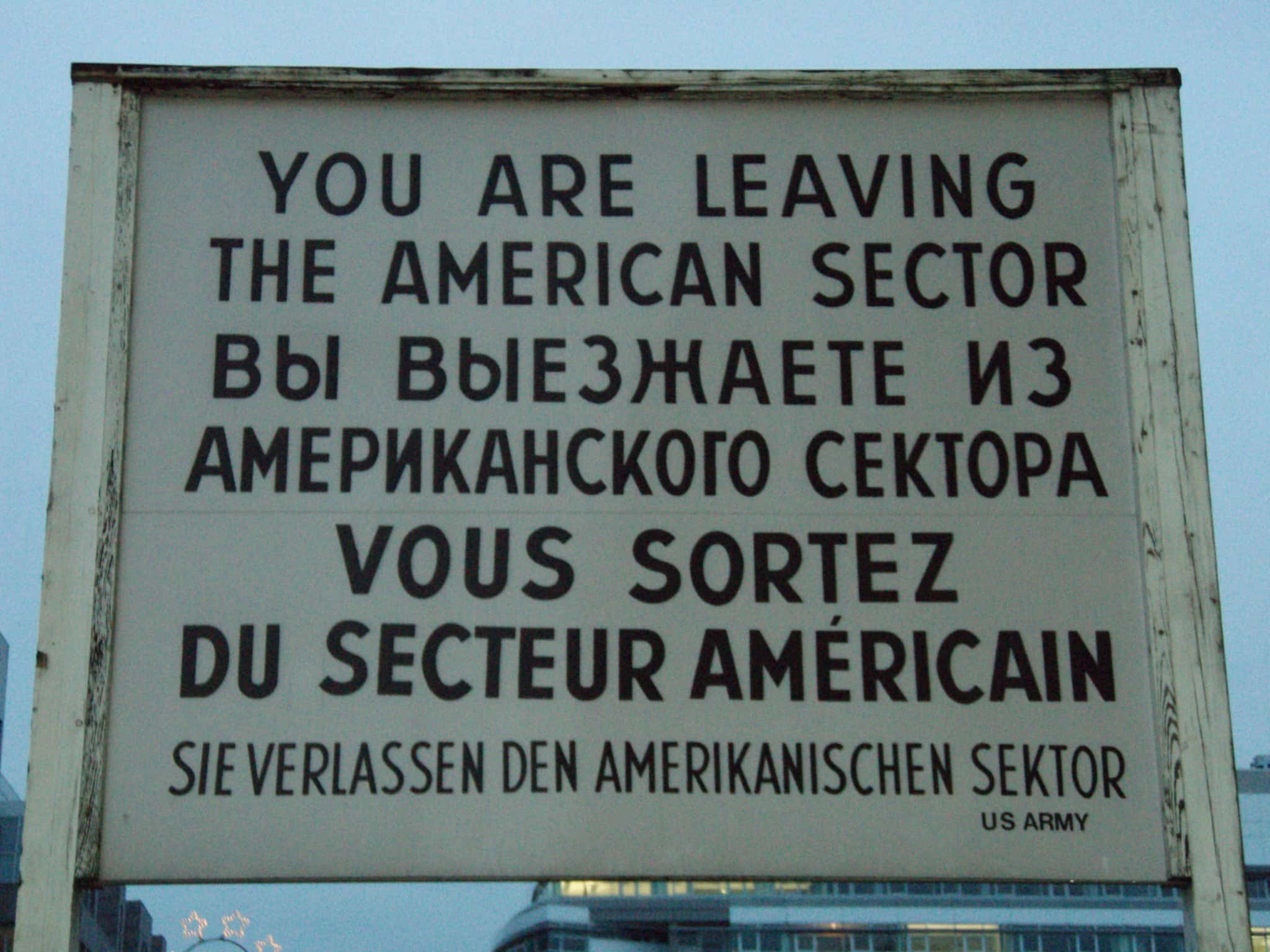
The wall was more than just a barrier, and a physical division of East and West Berlin. It was a symbolic boundary between communism and capitalism.
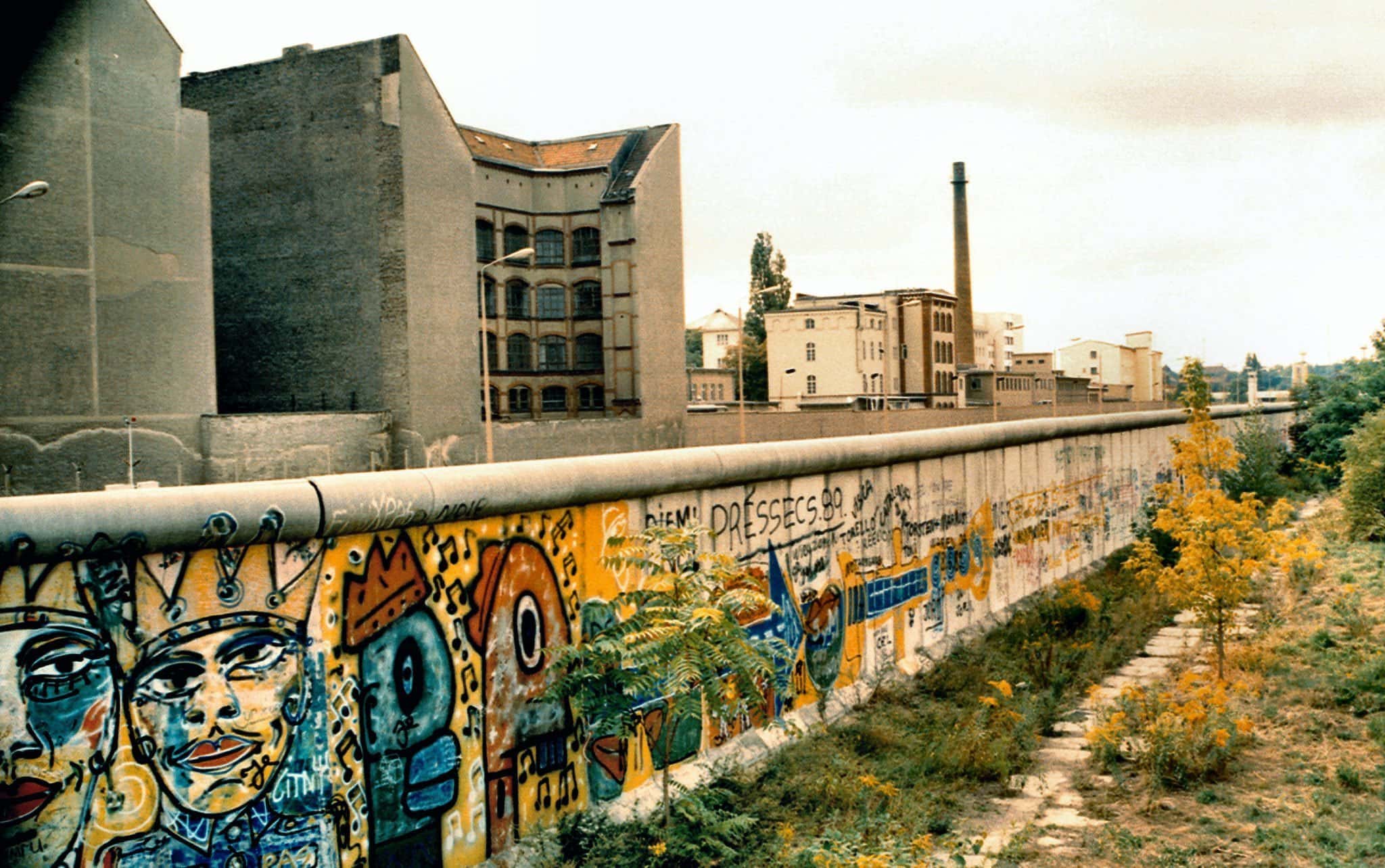
East vs West Berlin
West Berlin was like an island of democratic and prosperous economy surrounded by concrete and barb wire and positioned within the Soviet controlled area. The difference between East and West Berlin was stunning. It was like stepping into a time machine and thrown into the future. The West was all beautiful. It was bright. It had color and lights.
The East literally stank. The culprit of this acrid smell was the brown coal – the main source for heating. It was mined in large open pits and then pressed into briquettes. It was the lowest grade of coal, softer due to its water content and its heating value was around one quarter of black coal.
The East was grey and brown – there was no color at all. Wherever you looked everything was broken, worn-out, and showing a long-term neglect and lack of care. Even all of the people looked worn out and depressed.
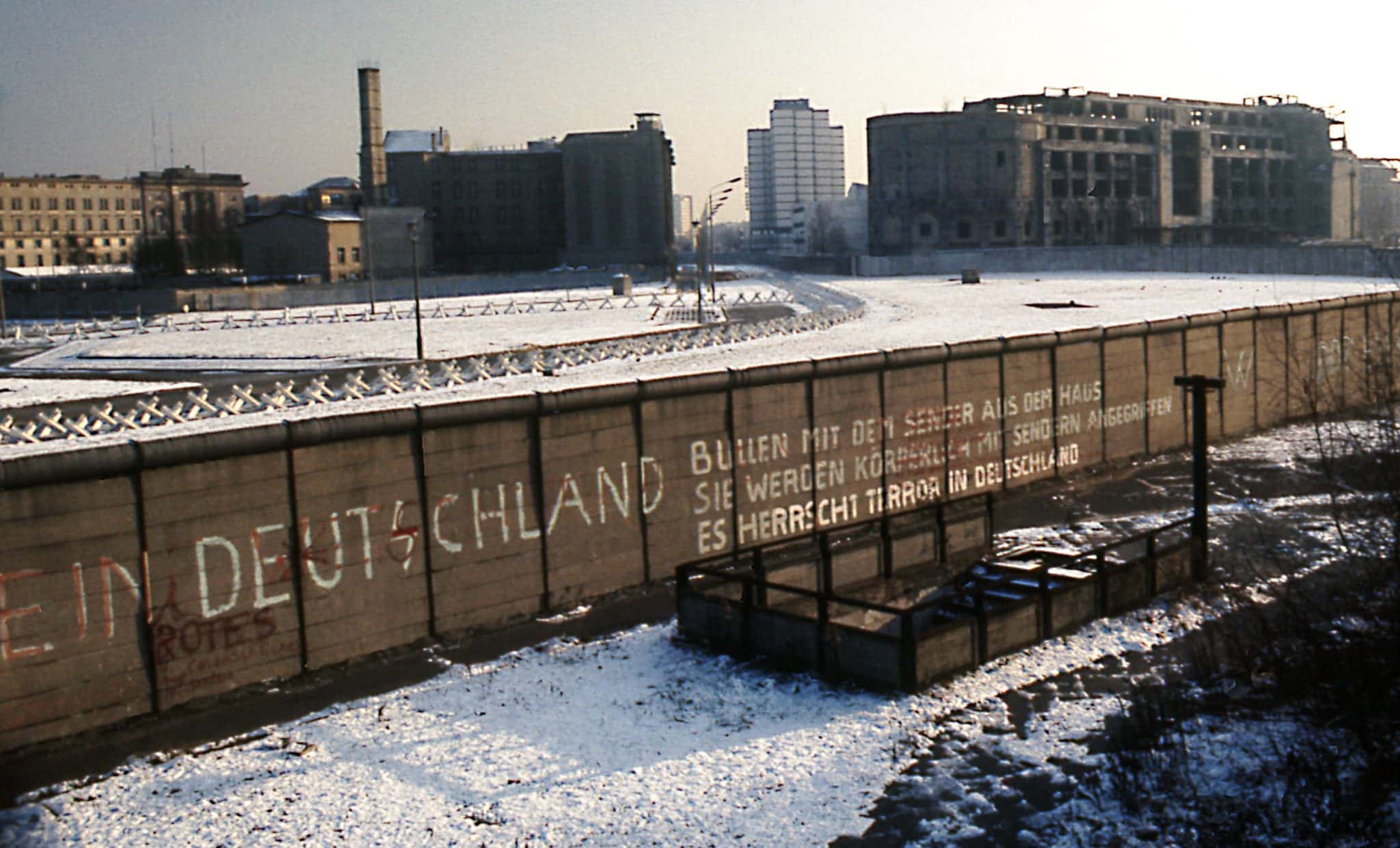
Potsdam Agreement of 1945
At the end of the Second World War, Germany was divided into four zones controlled by the US, France, GB and former Soviet Union. Berlin, even though it was situated in the Soviet Zone, was still split into four controlled zones. It was the result of the Potsdam agreement of 1945.
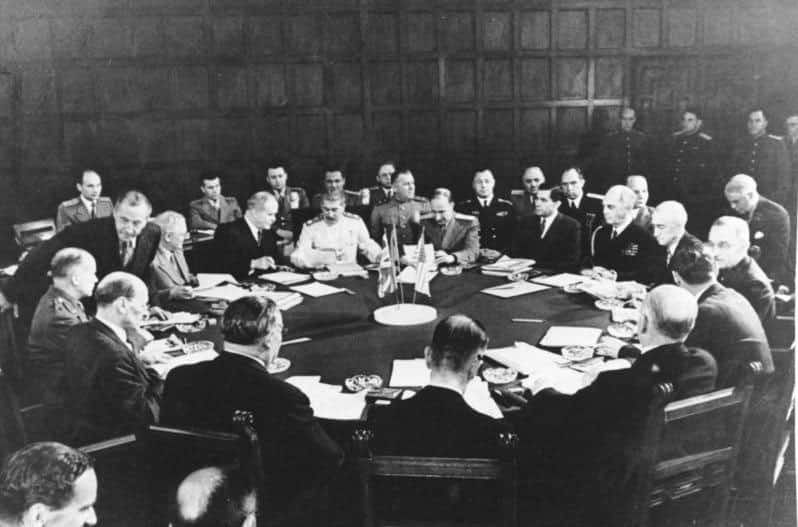
The Berlin Airlift
The existence of West Berlin – a capitalist city deep within a communist East Germany “stuck like a bone in the Soviet throat”, as the Soviet leader Nikita Khrushchev put it.
The relationship between the Soviet Union and the West deteriorated very quickly. It started in 1948 when the Soviet Union blockaded West Berlin aiming to starve the Western Allies. Instead of retreating, the US and its allies supplied West Berlin from the air, in an event known as the Berlin Airlift. It lasted for more than a year. Tons of food, fuel and other goods were airdropped to West Berlin. The Soviets called off the blockade in 1949.
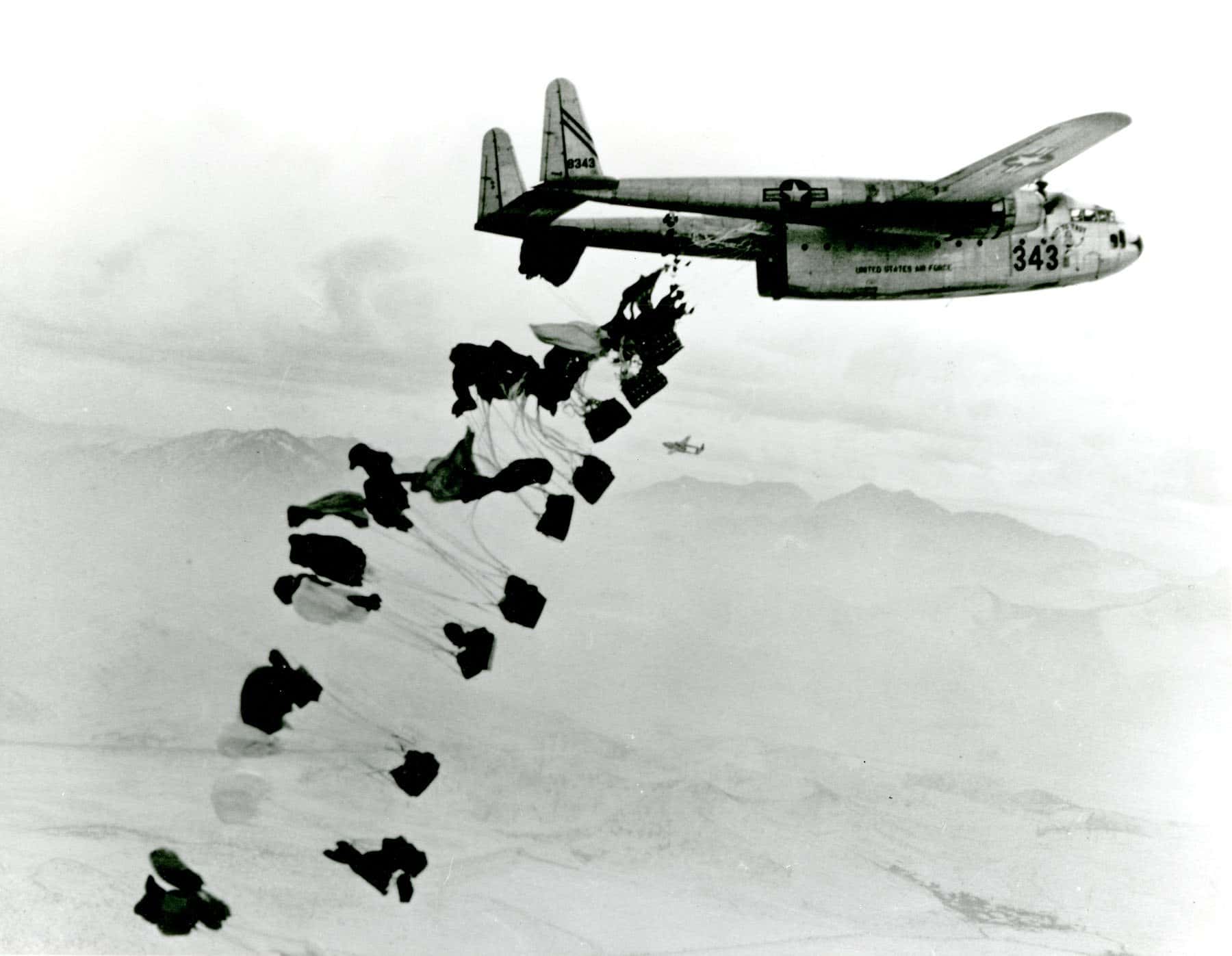
Economic Miracle vs Pilferage
With the help and support of the US and its allies, West Germany experienced a rapid growth known as the “economic miracle”. The opposite was true in East Germany. The Soviet Union pilfered anything valuable and shipped it to the Soviet Union. It had little interest in developing East Germany and rather focused on restricting human freedoms. Stasi (East German Secret Police) was ever-present.
The Mass Exodus
Between 1945 and 1961 an endless flow of refugees continued between East and West. It was like a mass exodus. More than 2 million people escaped to West Germany.
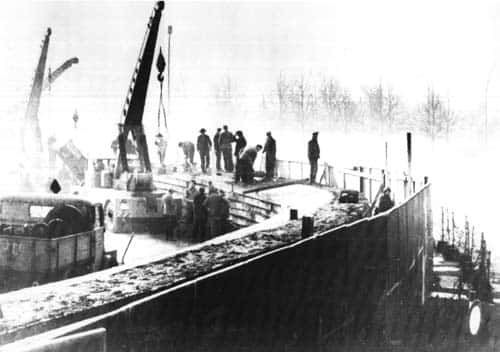
The Raise of the Berlin Wall
To resolve the issue, the Soviets built the wall. Berlin Wall – Berliner Mauer was erected in the dead of the night on August 13, 1961. The telephone wires were cut – there was no contact. First it was the barb wire fencing, but soon East Germany began to fortify the barrier with concrete. Keep in mind, before the wall was built, Berliners on both sides of the city could move around freely, they crossed the border to work, to shop, to visit each other.
As the time passed, the wall was fortified and improved many times to keep East Germans from escaping. But you cannot kill the human spirit. From 1961 to 1989 more than 5,000 East Germans managed to cross the border by jumping out of the windows of buildings next to the wall, climbing over the barbwires, flying in a hot air balloon, and crawling through the sewers. Many did not make it.
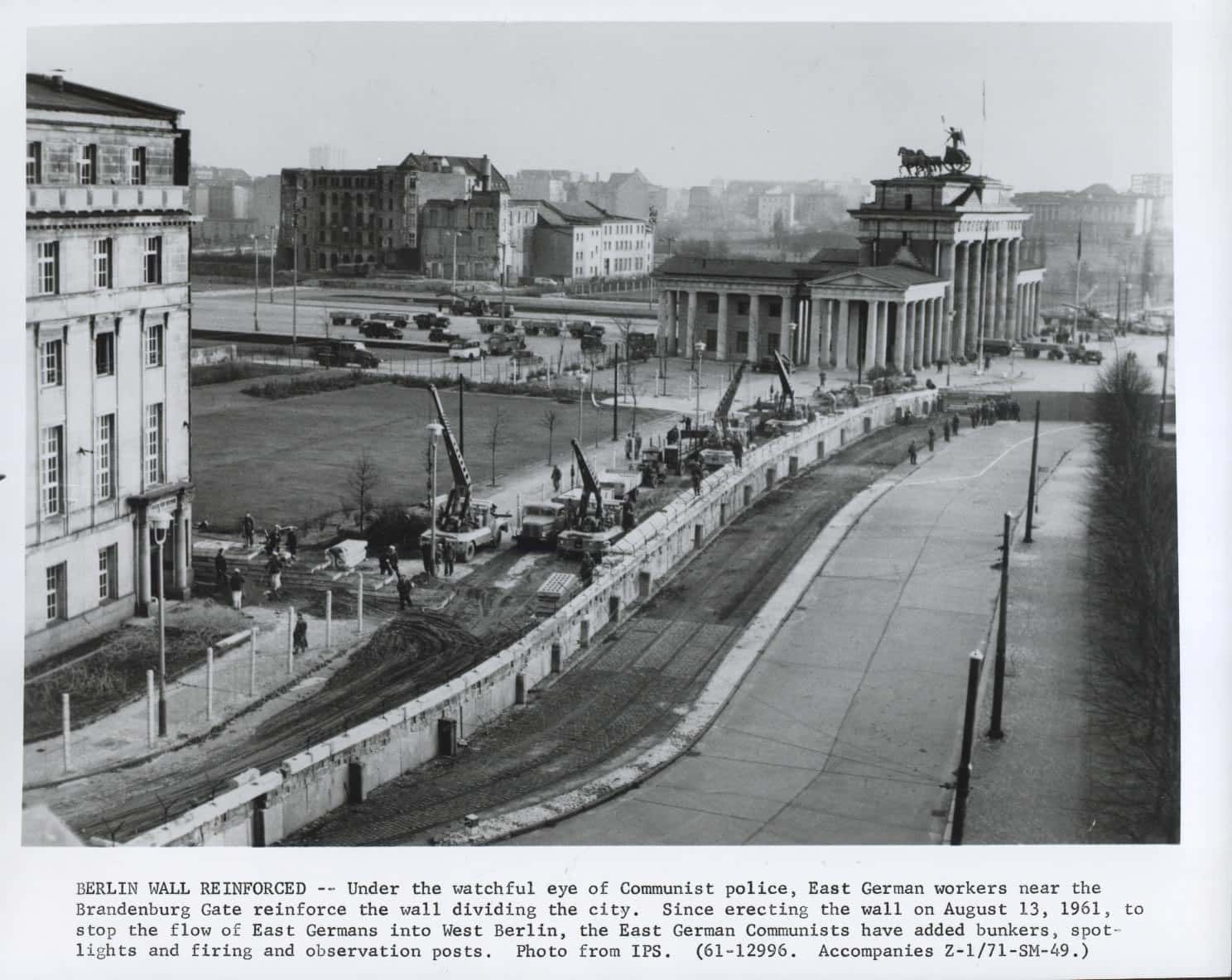
The Fall of the Berlin Wall
The Berlin Wall stood until November 9th, 1989. When the head of the East German Communist Party announced that citizens of the GDR (German Democratic Republic) could cross the border whenever they pleased, and the crowds swarmed the wall.
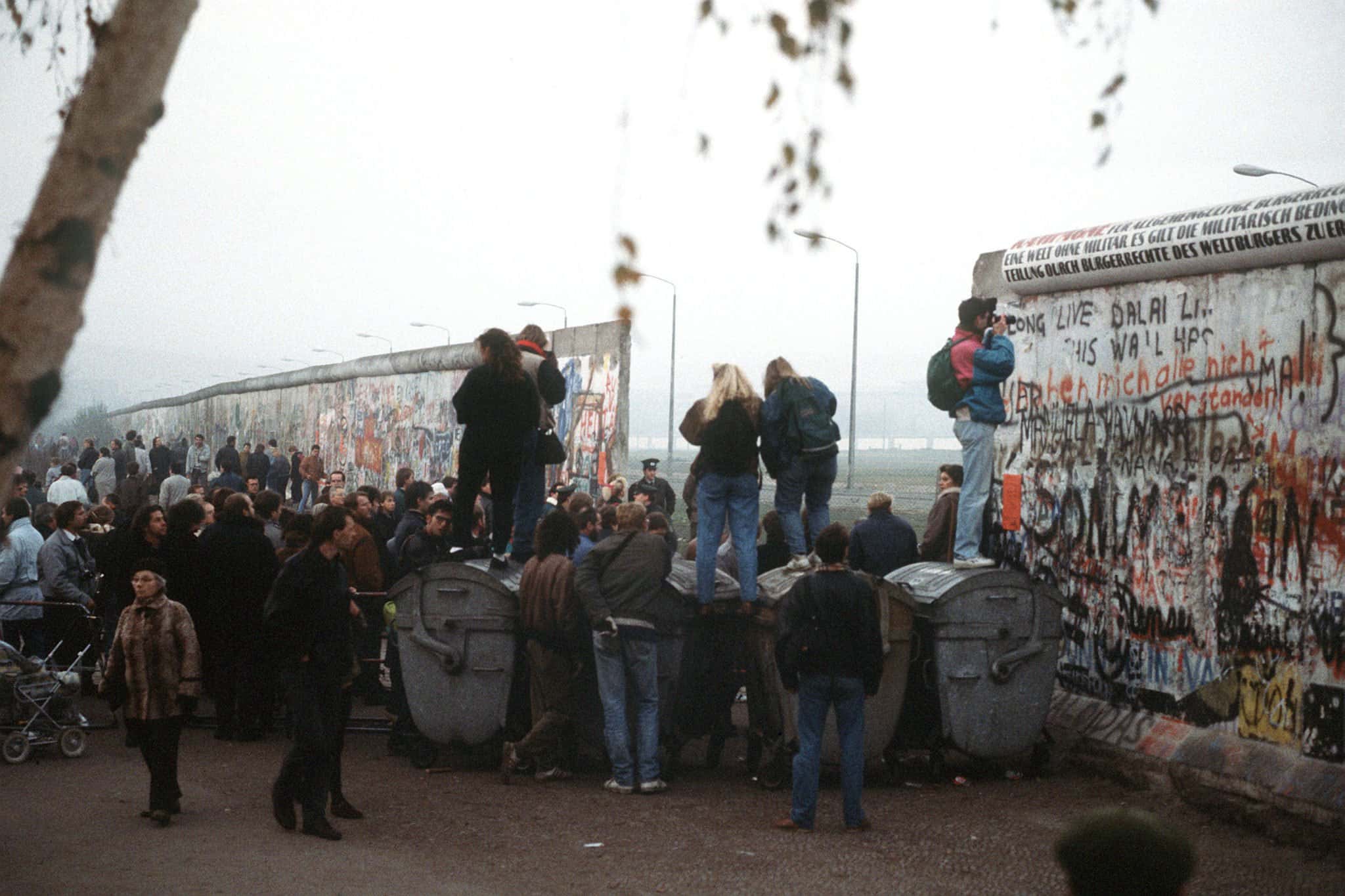
I watched the events unfold on TV. It was startling. I could not believe what I was watching.
People were massing at the checkpoints and crossing without being shot. I thought that it was not possible and that it would end and the guards would start shooting. It is not how the universe operates. The established order was violated and something horrible was going to happen. Nothing happened though and you realize that the better system eventually succeeded.
I more or less watched TV the whole night. It was an enormous bit of news to digest and it made me feel like I was a part of a change in history. It was a feeling of joy that I felt watching people with hammers and picks chipping at the wall.
I Am a Child of the Cold War
People ask me if I miss the places where I grew up. I do not.
The places where I grew up no longer exist. I am glad they are gone. I am a child of the Cold War though. If you only live in one country and one society, you never truly appreciate what you have. I do. I am very grateful for everything that I have.
I have visited Berlin many times. Everytime I went I saw changes that were so encouraging. I want to encourage you to check out this great city.
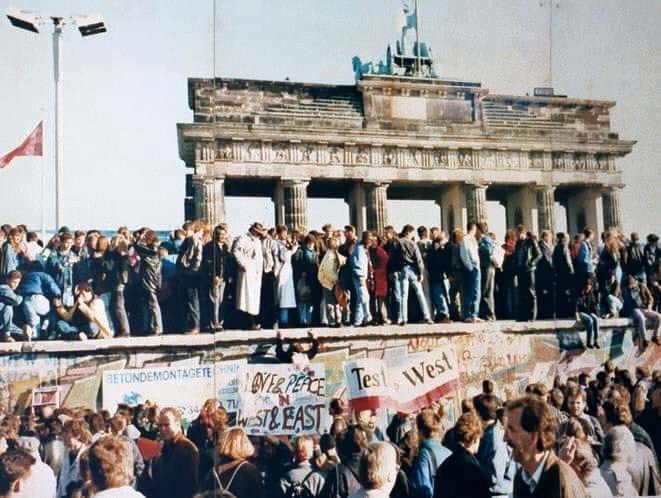



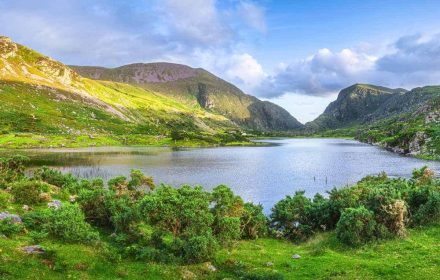

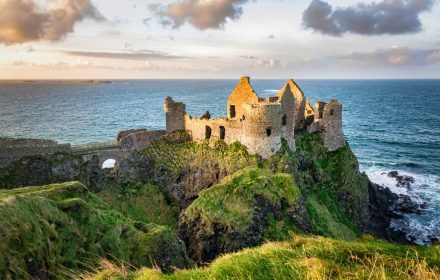
Comments:
2 thoughts on “I Am a Child of the Cold War”
Hello Anna,
I enjoyed reading this and found it very interesting… I lived in Munich 1988-1989 and returned for the years 1990 – 1995 and remember much of what you have written. I also expected something really bad to happen when I saw on TV that people climbed on top of the wall and began to tear it down. I never saw the wall in Berlin .. I only crossed the iron curtain one time to go to Budapest in 1988. I remember people shooting fireworks in Munich to celebrate the initial German Unity Day (Tag der Deutschen Einheit)
Hi there Charley,
Thank you for your comment! Unfortunately, the noble principles of communism failed miserably when they were put to test. Moreover, they left scarred generations and devastated economies. Even now, when I was re-reading my post, it brought tears to my eyes and stirred up painful memories. Again, thank you for your comment!